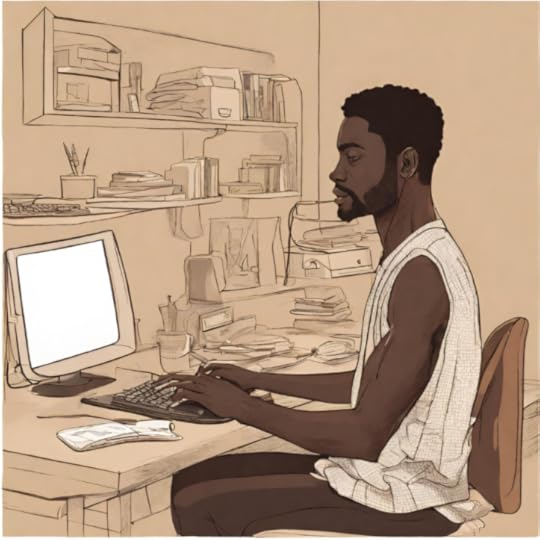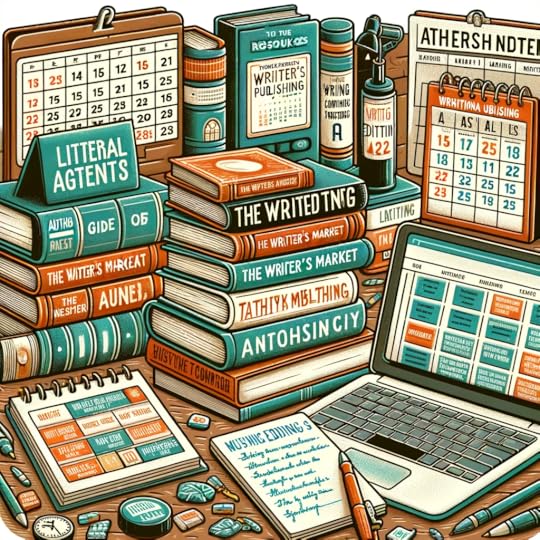Charting the Course: Tips for Navigating the World of Traditional Publishing
Stepping into the world of traditional publishing can feel like you’re embarking on an epic adventure – it’s thrilling, a bit scary, and absolutely packed with learning curves. But don’t worry, I’ve been there, and I’m here to share the map I wish I had when I started. Together, we’ll unravel the mysteries of traditional publishing. We’ll talk about why nailing your query letter matters, the secret sauce of comparative titles, and more. So, grab a cup of coffee (or your favorite writing beverage), and let’s dive into this journey.
Understanding Traditional PublishingAlright, let’s talk traditional publishing. It’s like the old school, classic way of getting your book into the hands of readers. Imagine a big publishing house turning your manuscript into a beautifully printed book, handling all the selling and marketing stuff. But to get there, you often need a wingman (or wingwoman) in the form of a literary agent. These agents are your golden ticket to the publishing world – they know the right people, understand the nitty-gritty of contracts, and can really champion your book.

The cool part? You get a team of pros editing your book, making it look pretty, and shouting about it from the rooftops. The not-so-cool part? It’s super competitive. Publishers want books they believe will fly off the shelves. So as an author, it means getting your manuscript polished to perfection and understanding what makes a book sell.
Getting your head around traditional publishing is like learning the rules of a new game. It’s about knowing who does what and making sure your book fits right in with what the industry is looking for. Stick with me, and I’ll walk you through how to prep your manuscript and make literary agents sit up and take notice, especially with those all-important comparative titles.
Preparing Your ManuscriptOkay, let’s get real about your manuscript. This baby is your masterpiece, your brainchild, and it deserves to be the best version of itself before it meets the world. Think of it like prepping for a first date – you want to make a great impression. So, first thing’s first: edit, edit, edit. Don’t just rely on your spellcheck. Read your manuscript out loud, get feedback from writer friends or join a writing group. You want this gem to be as polished as it can be.
And remember, every detail counts. Is your opening line a hook that grabs the reader? Does your story flow smoothly? Are your characters as real as your quirky cousin Bob? Fine-tuning these elements can make a world of difference. It’s like dressing up your story in its Sunday best.
The Art of Querying Literary AgentsNow, onto the art (and yes, it’s an art) of querying literary agents. Finding the right agent is like finding a dance partner – you want someone who gets your style and can groove with it. Start by doing your homework. Research agents who represent books similar to yours. Check out resources like Writer’s Market or QueryTracker. You’re looking for someone who’s going to be as excited about your book as you are.

Writing a query letter is like crafting a mini-masterpiece. You’ve got one page to make your book (and you!) shine. Start with a killer opening that hooks them in, give them a tantalizing taste of your story, and sprinkle in a bit of your own writerly charm. And yes, you’ll need a synopsis too. Think of it as your book’s elevator pitch – intriguing, clear, and leaving them wanting more.
Remember, agents are people too. They’re looking for a connection to your story and to you as an author. Be professional, but let your personality shine through. And don’t get discouraged by rejection – it’s just part of the author’s journey.
The Role of Comparative Titles in QueryingComparative titles – they’re not just bookish name-dropping, they’re your secret weapon in the querying battlefield. Think of them as your book’s relatives, the ones that show where it fits in the family of published works. Picking the right comps is like saying, “Hey, if you liked X and Y, you’re going to want to read my book!”
So, how do you pick these literary cousins? Look for books that share your book’s vibe, genre, audience, or themes. But be smart about it. Don’t just pick the latest bestsellers or classics – that’s like comparing yourself to Shakespeare, and who needs that kind of pressure? Find titles that are recent, but not too obscure. The goal is to show agents you know the market and where your book fits in it.
Using comparative titles effectively in your query can be a game-changer. It helps agents quickly understand your book’s potential appeal. It’s like giving them a shortcut to ‘get’ your book. Plus, it shows you’re not just a writer but a reader too, someone who knows and loves the world of books.
Resources for Traditional PublishingNavigating the traditional publishing world can feel like trying to find your way through a maze without a map. But fear not! There are some fantastic resources out there to guide you. Books like “The Writer’s Market” or “Guide to Literary Agents” are goldmines of information. They’re like your personal GPS through the publishing world.

Online, communities like Writer’s Digest, Absolute Write, and Manuscript Wishlist can be lifesavers. They’re not just information hubs; they’re like coffee shops where writers hang out, share stories, and support each other. And don’t forget about writing conferences and workshops – they’re great places to learn, network, and maybe even meet agents in person.
Make these resources your allies. Absorb the wisdom they offer, and use it to refine your strategy. Remember, knowledge is power, especially in the world of publishing.
Final Tips and Best PracticesAlright, before we wrap up, here are some parting nuggets of advice from one author to another. First, be patient. Traditional publishing is a marathon, not a sprint. It takes time, persistence, and a thick skin. Rejections? They’re not failures; they’re stepping stones. Every no gets you closer to that yes.
Stay true to your voice. It’s easy to get lost in the sea of advice and market trends. While it’s important to be aware of the market, don’t lose what makes your writing uniquely yours. That’s your superpower.

Network, network, network. The writing community is wonderfully supportive. Connect with other writers, join groups, participate in forums. These connections can be a source of encouragement, advice, and sometimes, they can even lead to opportunities.
Lastly, never stop writing. Keep honing your craft. Work on your next project. The more you write, the better you get, and the more you have to offer the world.
Embarking on the traditional publishing path is a brave and exciting journey. It’s filled with challenges, but the rewards – seeing your book on a shelf, sharing your story with the world – are incomparable. Remember, every published author was once where you are now. Keep learning, keep writing, and above all, keep believing in yourself. Your story matters. Now go tell it to the world.



